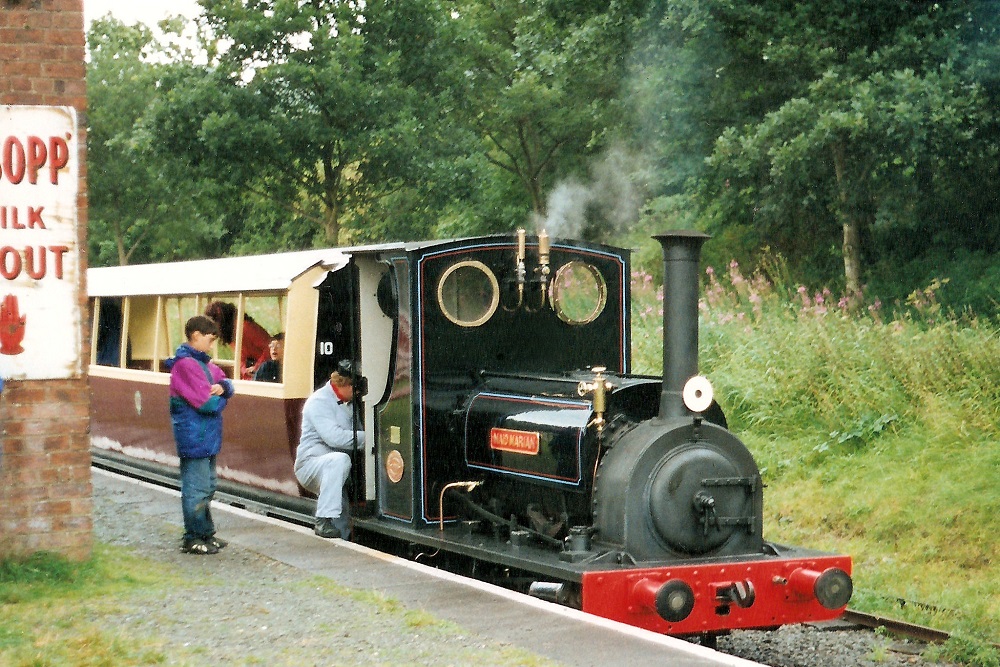Plans to extend Llyn Tegid narrow gauge railway hit the buffers

Dale Spridgeon, local democracy reporter
Ambitious plans to extend a popular Eryri (Snowdonia) lake narrow gauge railway have hit the buffers.
The National Park Authority’s planning group have turned down plans for an extension to one of North Wales’ “great little trains” Llyn Tegid Railway.
For the past nine years the Rheilffordd Llyn Tegid (Bala Lake Railway) Trust have been aiming to extend the track from its current station at Penybont, on the lakeshore, to a new terminus close to the town centre.
The proposals called for an extension, comprising of 1200m of railway track, installation of level crossing, erection of new station building, ancillary engine and carriage building, signal box and associated development.
Over £1.4m has been spent on land acquisition and drawing up plans for the project.
Whilst officers said the new station could help regenerate that part of the town and enhance the Conservation Area, it needed to be carefully designed.
Dwr Cymru have also objected on the grounds that the development will be over several public sewerage and water mains to which access is required at all times.
Unfounded
Earlier this week, Julian Birley from the Bala Lake Railway Trust issued a statement saying that fears over pollution were unfounded.
And that the project had generated “unprecedented support” at every level, from the Westminster MP Liz Saville Roberts, Senedd MS, Mabon ap Gwilym, to local businesses and towns folk.
A statement released by the National Park Authority on Wednesday said: “At the National Park Authority’s Planning and Access Committee this morning, planning approval for the extension of the Llyn Tegid railway into the town of Bala was refused.
“The recommendation for members to reject the permission was based on several reasons.
“Although there was potential for some issues to be resolved through the provision of further information by the applicant, others were of such significance that they could not have been resolved within the scope of this application, despite Planning Officers’ working closely with the developers from the very beginning.
“These included the effect of the development on the River Dee and Llyn Tegid Special Area of Conservation; as well as insufficient information about the development’s effect on the local road network in terms of access, traffic and congestion levels, and the safety of pedestrians and road users. Natural Resources Wales and the Welsh Government’s Highways Department also objected to the approval of the application.”
It added: “The Authority recognises the economic benefits of this development to the town of Bala, and it sympathises with the applicant’s disappointment.
Planning Officers support the principle of this development, and are of the opinion that there is potential for this development to be approved in the future, provided that all the required information is submitted.
“However, as some aspects of the application does not satisfy regulatory requirements, it was impossible for Planning Officers to recommend the approval of the application today.
“The applicant is free to appeal the decision, or to re-submit the application once all the relevant information has come to hand.”
The two-foot gauge line runs along a 4.5-mile section of the trackbed of the former Ruabon – Barmouth line.
It opened in 1972 and celebrated its 50th anniversary last year.
Support our Nation today
For the price of a cup of coffee a month you can help us create an independent, not-for-profit, national news service for the people of Wales, by the people of Wales.





This is yet another joke…Independence what chance, given this pile of wasted time, money, energy and lives, work together! over our dead bodies?
Just met the railway team, now I understand…overqualified compared to the muck spreaders, river polluters and beach foulers…
They should have attached a zip wire gimmick to their proposal then Drakeford & Co would have gone for it like rats up a drainpipe!
I suspect that it was NRW and the Welsh Petrol Heads Department that were the biggest blockers. The latter seem to have not yet got hold of the idea that the future will see less motor traffic as we move towards net zero.